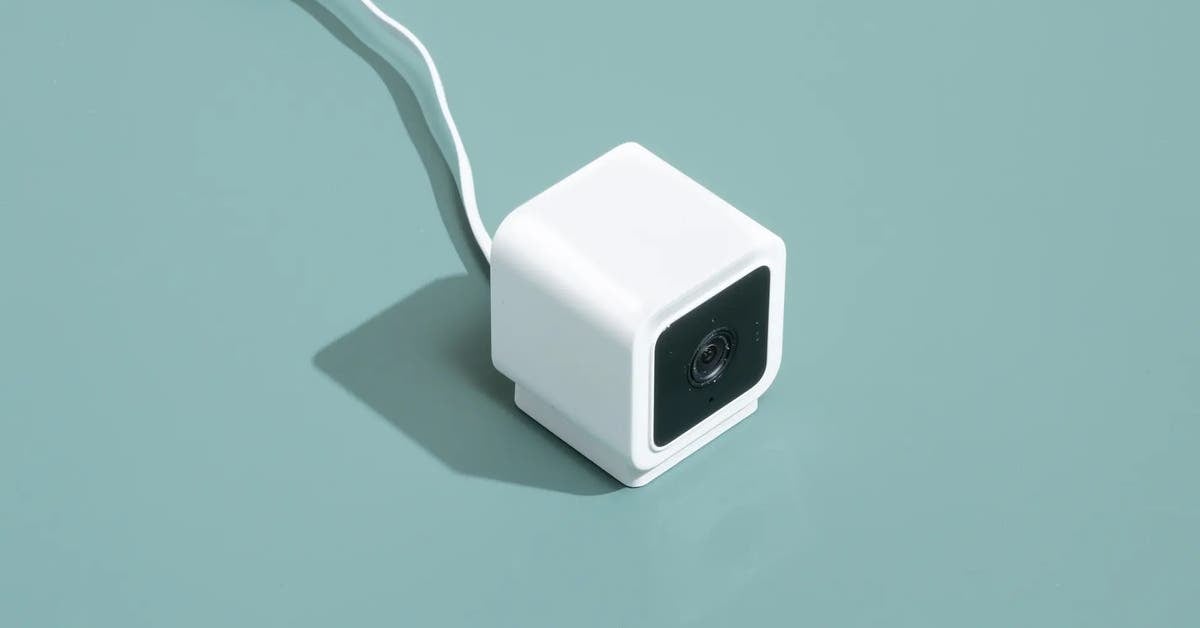- cross-posted to:
- [email protected]
- cross-posted to:
- [email protected]
After six years of reviewing a variety of Wyze security cameras at Wirecutter, we’ve made the decision to suspend our recommendation of them from all our guides.
On September 8, 2023, The Verge reported an incident in which some Wyze customers were able to access live video from other users’ cameras through the Wyze web portal. We reached out to Wyze for details, and a representative characterized the incident as small in scope, saying they “believe no more than 10 users were affected.” Other than a post to its user-to-user online forum, Wyze Communities, and communication to those it says were affected, the company has not reached out to Wyze customers, nor has it provided meaningful details about the incident.
We believe Wyze is acting irresponsibly to its customers. As such, we’ve made the difficult but unavoidable decision to revoke our recommendation of all Wyze cameras until the company implements meaningful changes to its security and privacy procedures.
The concern is not that Wyze had a security incident—just about every company or organization in the world will probably have to deal with some sort of security trip-up, as we have seen with big banks, the US military, Las Vegas casinos, schools, and even Chick-fil-a. The greater issue is how this company responds to a crisis. With this incident, and others in the past, it’s clear Wyze has failed to develop the sorts of robust procedures that adequately protect its customers the way they deserve.
We spoke about this incident to peers, colleagues, and experts in the field, such as Ari Lightman, professor of digital media and marketing at Carnegie Mellon University; Jen Caltrider, program director at Mozilla’s Privacy Not Included; and Wirecutter senior staff writer Max Eddy. All of them agree the central issue is that Wyze has not proactively reached out to all its customers, nor has it been adequately accountable for its failures. “When these sort of things happen, [the company has to be] very open and transparent with [the] community as to why they screwed up,” Lightman explained. “Then the company has to say, ‘Here’s exactly what we’re going to be doing to rectify any potential situation in the future.’”
If this were the first such incident, we might be less concerned. However, it comes on the heels of a March 2022 Bitdefender study (PDF), which showed that Wyze took nearly three years to fully address specific security vulnerabilities that affected all three models of Wyze Cams. The company did eventually alert customers of the issue, and it notably guided them to stop using the first-generation Wyze Cam because “continued use of the WyzeCam after February 1, 2022 carries increased risk, is discouraged by Wyze, and is entirely at your own risk”—but that was long after the serious vulnerability was first discovered and reported to Wyze, on multiple occasions, without getting a response.
The fundamental relationship between smart-home companies and their customers is founded on trust. No company can guarantee safety and security 100% of the time, but customers need to be confident that those who make and sell these products, especially security devices, are worthy of their trust. Wyze’s inability to meet these basic standards puts its customers and its devices at risk, and also casts doubt on the smart-home industry as a whole.
In order for us to consider recommending Wyze’s cameras again, the company needs to devise and implement more rigorous policies, as most of its competitors already have. They need to be proactive, accountable, and transparent. Here’s what we expect from Wyze in the event of a security incident:
- Reach out to customers as soon as possible: Send an email to all customers, send push notifications in the app, put out a press release, broadcast in the Wyze Communities online forum.
- Describe the issue in detail and state precisely who was affected (and who wasn’t).
- Explain specifically what steps are being taken to aid affected customers and what if any actions the customer needs to take on their own.
- Follow-up with customers to let them know the issue has been resolved.
For anyone who has Wyze cameras and intends to continue using them, we recommend restricting their use to noncritical spaces or activities, such as outdoor locations. If you are looking for an alternative, better camera options are available—even for smart-home users on a budget.
This isn’t the first time Wirecutter has pulled a smart-home device due to concerns over accountability. In 2019, in response to a data breach at Ring, we retracted our endorsement of all of the company’s cameras. We eventually returned to reviewing Ring gear, and in some cases recommended them to our readers, after the company made a series of significant improvements to its programs and policies.
We continue to recommend Wyze lighting, since we consider them lower-risk, lower-impact devices—a security breach of a light bulb, for instance, wouldn’t give someone a view of your living room. Should Wyze change course and adopt more substantial policies like those above, we will be happy to resume testing and considering them for recommendation.
We continue to recommend Wyze lighting, since we consider them lower-risk, lower-impact devices—a security breach of a light bulb, for instance, wouldn’t give someone a view of your living room.
Call me paranoid, but I don’t want a company I don’t trust plugged into my network at all.
I don’t consider this „paranoid“ at all.
No, you’re not paranoid. I’d call it diligent.
The premise of the statement you quoted is faulty to the core. A device internal to your home network knows a lot about the design of your home network and it knows a lot about the other devices on your network, and it can be used to facilitate/relay malicious access to your other devices if it becomes compromised.
Wyze has always struggled with security problems…and I’ll admit that I do have several wyze cameras…but long ago decided their security was not trustworthy and created an entirely new virtual lan to run just my IOT stuff from. That, at least, reduces the exposure for some of their security issues. I certainly would never have interior cameras built by wyze - that’s too risky even with robust network security on my side of it.
They’ll be able to flash Morse code at you
-... . / ... ..- .-. . / - --- / -.. .-. .. -. -.- / -.-- --- ..- .-. / --- ...- .- .-.. - .. -. .you laugh, but you can exfiltrate data out of airgapped systems by flashing lights
He wasn’t laughing, he was overcome with a sudden craving for Ovaltine. He’ll be with you in a moment.
And playing music!
I tried translating that, but Lemmy formatting has borked it. The first three words are “BE SURE TO” but the rest is not translatable.Never mind, I got it. And yes, I drink it every day. :)
They could also exfiltrate your information from inside your network and turn into ping flooding zombies
Imagine a world where an adult person who has self respect feels need to coach his reasonable position like this…
People are too willing to place shody spyware in their houses. I don’t understand how we got here, I guess cell phones?
Me neither. But building an entirely off-site video monitoring server is a bit over my head. So I just use cameras like this when I’m not home.
Switch to Unifi. It’s enterprise-grade hardware and high quality software at consumer prices. If you know networking, you can set them up without connecting them to the internet while still being able to access them outside your network. If not, you can just use their free web portal to access your cameras. It’s probably easier than Wyze, and it’s certainly more secure.
I don’t normally like to shill brands on the internet, but for these people I make an exception.
Hi paranoid, I’m dad.
Finally. I tossed mine after the incident last year.
EDIT: Wait, they replaced it with a Eufy camera? After the same thing happened with them last year?
🤡
deleted by creator
I personally use Amcrest + Home Assistant behind a firewall, but that’s far from perfect. I’ve been interested in the new Amazon Blink cameras too, since they support self hosting (at least in some capacity). Still a bit iffy about them though, for obvious reasons.
deleted by creator
I hope Lorex doesn’t have a problem because that’s what I’m using.
Mine is recording cats on our porch. We are always home and it doesn’t catch any audio that matters as we are rarely in the room where that window is. I would never have cameras pointed inside the house where I need privacy. Not even if I had it all hooked up to my own server the last thing I’d want is my private moments recorded lol. Freaking weird.
Remember: When dealing with any IOT device, the “S” is for “Security”.
There’s no S in IOT!!!
Wait… oh … 😲
Are there decent camera systems that allow you to self-host everything?
If you want to self-host you NVR then anything RTSP or ONVIF. I have a combination of Ubiquiti, Reolink, Dahua, and Amcrest cameras. They sit on their own network with no Internet access and can only talk to the NVR. That’s not exactly an easy setup though unless you are fairly technical but it is a private one.
Any specific reason for the mixed brands? I went 100% Unifi in my home (cameras and networking equipment) and it’s amazing. Everything just works, and the apps are great. While I haven’t bothered to go through the effort of setting up a VPN so that the NVR is disconnected from the internet, I know it’s doable.
I understood about 7 words of your comment
To translate, a decent set-up involves a self-hosted controller and recorder unit, to which cameras speaking an open protocol connect. RTSP- or ONVIF-style cameras are often chosen for compatibility with a standard central unit (Network Video Recorder, or NVR).
Brands like ReoLink, Dahua, Armcrest, and (to a lesser extent) Ubiquiti, will easily connect to that self-hosted NVR; although, if some of those camera brands are sketchy then you may need to confirm they’re isolated from the world and test that assumption regularly.
I have had good luck with reolink cameras, which, so far, have with RTSP as a feature by default. They offer a program, which amazingly doesn’t require an account be made.
I put custom RTSP firmware on all of my old Wyze cameras and then blocked them from WAN access.
Ubiquiti is who I chose. Everything is self hosted, no service fees, good quality equipment and no extra frees for remote maintenance. The motion and AI detections work very well and of course all the products integrate seamlessly into their UniFi network equipment…BUT it’s more a whole network approach than just cameras.
That does look pretty slick! Definitely something I will have to look into more.
My posh friend has an ubi setup. And then she bought a camera to see under the ice in her Koi pond.
Ubi refused to connect it.
I stayed back, as she’s technically proficient and I want to mess with cameras like I want to mess with printers - make my own work, but that’s it - but it really seemed like Ubi doesn’t work with anything else, and that’s by choice a la apple.
You can use Ecobee’s cameras with HomeKit secure video. Just block the cameras from being able to talk to the internet via firewall first.
Eh. I feel like being written up in wirecutter is reason enough to avoid those products altogether.
Yeah, Bribercutter has really gone downhill since the NYT acquisition
Hikvision has a decent line of chinesium local-only PoE cameras. I’ve used a few of them with Frigate and Home Assistant with great success.
They recommended them in the first place? They have always had absolutely garbage security.
Their lighting app is a steaming pile of shit as well.
I actually had this glitch or something similar. Was staying with a friend when I got an activity alert…but it was from their camera. IIRC all it gave me was a still frame of them standing in front of it. I never bothered reporting it to Wyze. I figured it was some rare glitch because I had given my friend that camera (it was now on their account and not linked to mine).
Hmm, I recall someone saying there’s a way to avoid this by having custom firmware on the Wyze cameras?
If you have a bunch of v2s try this. https://github.com/openmiko/openmiko
Install the rtsp firmware, run the cams on a network without internet access, run zoneminder or other CCTV software to self host the video feeds… if you want object detection you can add it on but you’ll need a processor like a coral device.
Is there a way to access the feeds remotely if you have the cams on a network without internet access?
With a VPN
The best solution is Reolink DIY on-prem one.
Would you mind linking to what you’re describing?
https://support.reolink.com/hc/en-us/articles/360015674314-How-to-Initially-Set-up-Reolink-Devices/
Make sure to not connect to cloud. Just use it as IPcameras.
Will they do person / object detection when setup like that or do they need an internet connection for that to work? I’m liking what I’m seeing with their product line-up and integration with Home Assistant but these days I won’t use anything that doesn’t work local only.
Yes, you need internet however dont open it to the world. If you need help with restricting ports, ask the selfhost community here on Lemmy. Self host is a really helpful community.
















